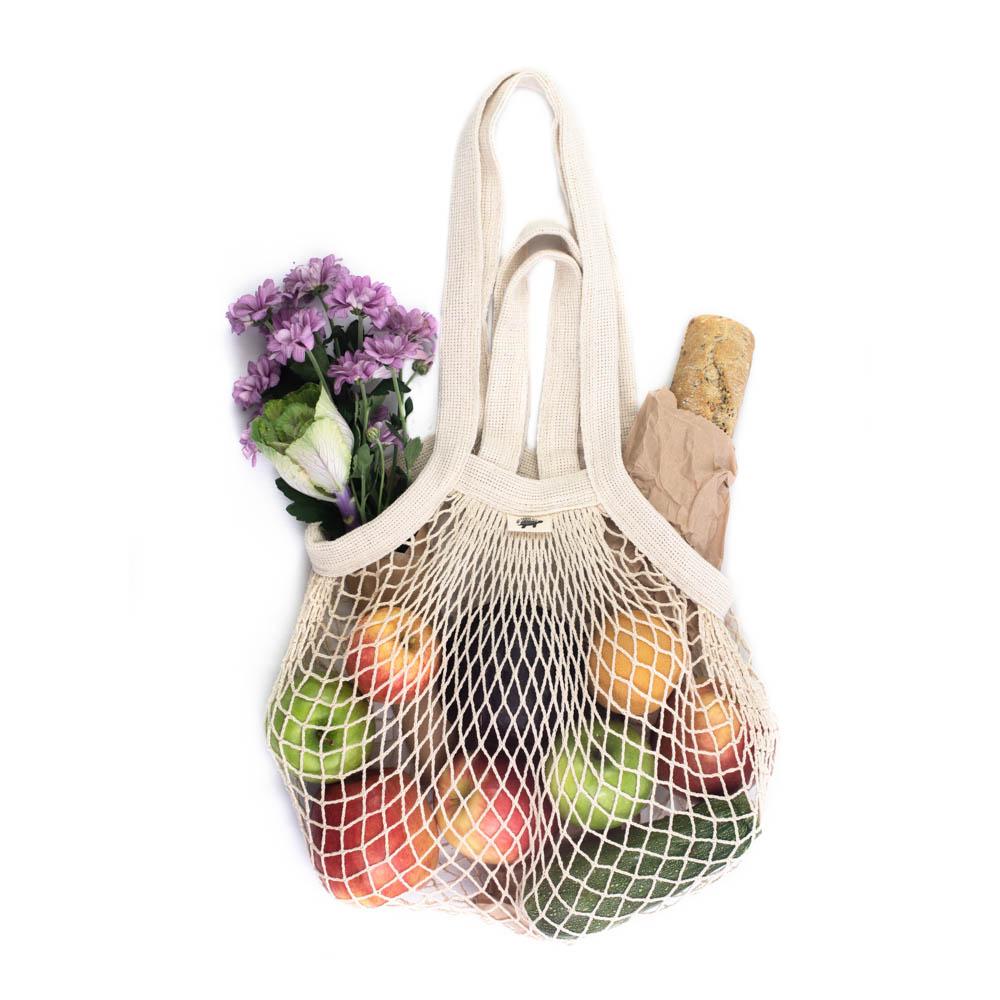
Ways to make eco-friendly living a no brainer
Knowing where to start our sustainability journey can feel intimidating. The 21st century introduced most of the western world to recycling and composting as our earth-friendly responsibilities, but what else can we do? Even if we are eco-warriors ourselves, how do we get the whole family to follow suit? The answer is, by sewing sustainable choices into the fabric of our lives. While we can’t all design sustainable homes from the ground up, we can all change our household practices for the better. Here are 5 planet-friendly tips that are sure to make Captain Planet proud:
Eliminate Single-Use Packaging
Try Swapping plastic grocery bags for a pocket-friendly collapsible tote bag; slip one in your bag or hook it on your keys. Because this tote will never be too far away, it eliminates the temptation to choose “Paper or Plastic”. Like any reusable product, organic cotton bags actually have to be reused to make any environmental impact. Cotton products take an excessive amount of water to produce just a single kilogram, so limit your tote collection to one. A great option is Double Handle Cotton Net Market Tote Bag; with these bags, you are sure to keep up the good work.
Double up your impact by avoiding the middle aisle of your grocery store, i.e. the place where all the processed food live. Consider transforming your pantry into an Architectural Digest-worthy display by buying in bulk and storing all goods in reusable jars. We like the earth-conscious brand OXO’s Good Grip food storage system.
Use Kitchen Rags Over Paper Towels
Sure, paper towels are convenient and disposable but did you know that they are also harmful to our planet? The tree to trash single-use nature of paper towels makes them an unnecessarily wasteful practice. In a conversation with Huffington Post, Brad Gray, Planet Ark Head of Campaigns said, “…Each time you use a paper towel, you have to consider the fact someone had to harvest a tree, transport the tree, process the tree, make it into paper, package it, sell it — then the store has to have lights on in order to sell it — the list goes on and on.” We suggest doing one large load at a time of Eco Friendly ‘Swedish” Dishcloths.
Try Treating Your Windows
When replacing a window comes with too high of a price tag, another option to consider is window treatments. Either drapes or blinds, window coverings act as added insulation layers to block out cold and heat. By blocking out cold autumnal drafts, we conserve energy and lessen the environment’s already heavy load. Blocking out the sun during the summer months can help cut down on the cost of air conditioning. If you are out during the day, keep the blinds closed to help keep your home cool.
Reduce Meat Consumption
According to the BBC “…livestock (animals raised for meat production) are thought to contribute up to 14.5% of people’s greenhouse gas emissions.” What this means is that what we eat impacts on a lot more than our waistlines. Reducing the consumption of animal products can effectively contribute to the health of our planet. Not to worry, incorporating plant-based eating does not have to be bland. Try sticking to whole foods instead of processed meat replacement items. If you are looking for inspiration take a look at the Sunday Times Bestselling cookbook: One Pot, Pan, Planet: A Greener Way to Cook for You and Your Family.
Make A Habit of Living Sustainably
If we are looking at improving our eco-friendly scores, it’s more than looking at what we buy, it takes examining how we live. We have to make a habit of asking ourselves, as we move through our day, if the choices we are making are planet-healthy. Did we drive when we could have walked? Did we run a half-empty dishwasher? Did we leave the water running unnecessarily? Before bringing an item into our homes, do we take a look at the environmental impact? Product-systems designer, Celeste Jhala, encourages consumers to look for cradle 2 cradle (C2C) certified products. C2C tracks a product’s lifecycle from creation/production to disposal.


